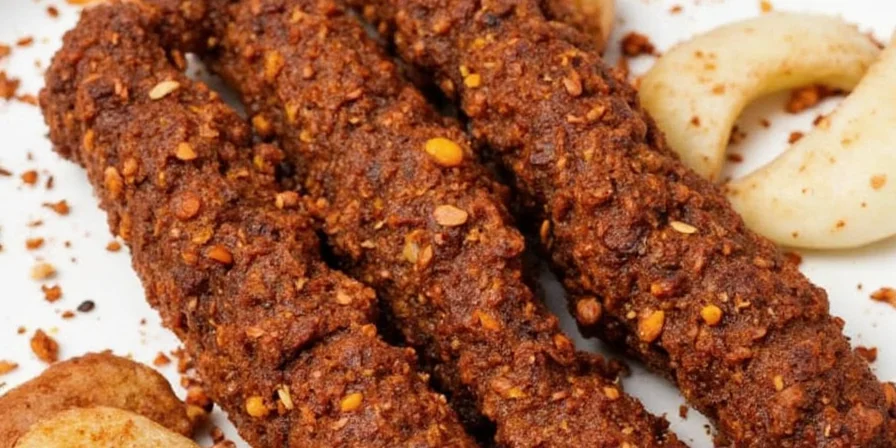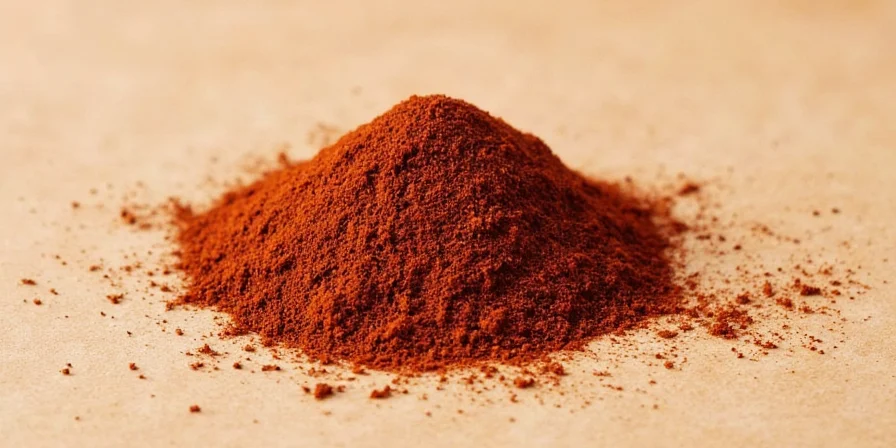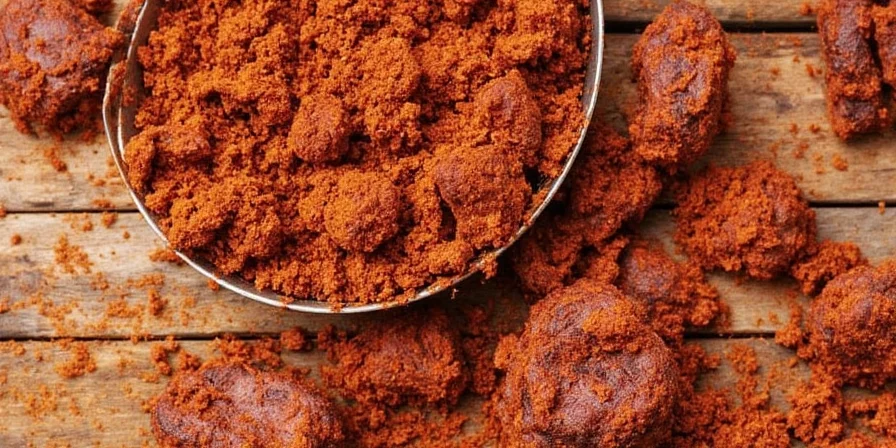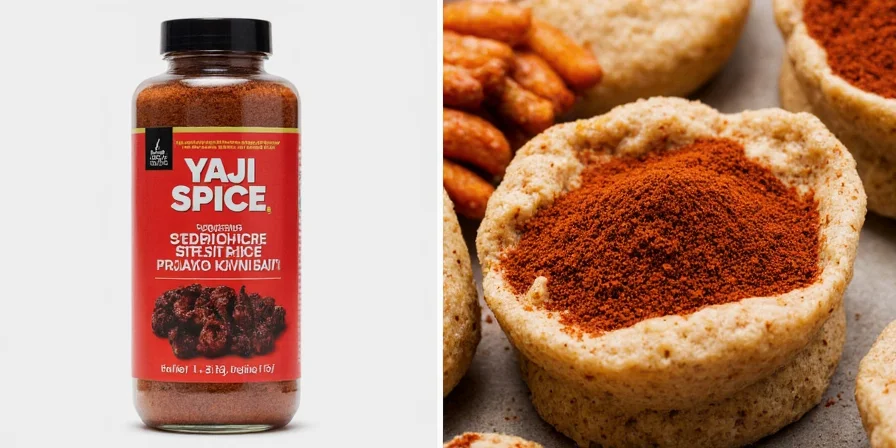Yaji spice is a fiery West African seasoning blend essential for authentic suya (grilled meat skewers). This complete guide delivers both a simple 5-ingredient recipe for home cooks and advanced technical insights verified by Nigerian culinary experts. You'll learn how to make Yaji spice from scratch, proper application techniques, authentic ingredient sourcing, and practical substitutes when traditional ingredients aren't available - plus verified nutritional information and common mistakes to avoid.
Table of Contents
- What Is Yaji Spice? (Simple Definition)
- Easy Yaji Spice Recipe for Home Cooks
- Authentic Ingredients & Where to Buy Them
- How to Use Yaji Spice Properly
- 5 Common Yaji Mistakes to Avoid
- Practical Substitutes When Ingredients Are Unavailable
- Nutritional Facts & Health Benefits
- Frequently Asked Questions
What Is Yaji Spice? (Simple Definition)
Yaji is the signature seasoning for Nigerian suya (grilled meat skewers), consisting primarily of ground peanuts, cayenne pepper, smoked paprika, dried shrimp powder, and garlic. Unlike commercial "suya spice" mixes, authentic Yaji contains no salt - its deep umami flavor comes from fermented dried shrimp and roasted peanuts. The blend creates that distinctive dark red coating on suya meat and provides both heat and complex savory notes.

Easy Yaji Spice Recipe for Home Cooks
Here's a simplified authentic Yaji recipe you can make with ingredients available at most grocery stores. This version maintains traditional flavor while adapting for Western kitchens:
| Ingredient | Home Kitchen Measurement | Key Function |
|---|---|---|
| Roasted peanuts (unsalted) | ⅓ cup, finely ground | Creates base texture and nutty flavor |
| Smoked paprika (NOT sweet) | 2 tablespoons | Provides smokiness and deep red color |
| Cayenne pepper | 1½ tablespoons | Delivers authentic heat level |
| Garlic powder | 1 tablespoon | Adds savory depth |
| Dried shrimp powder (or substitute) | 1 teaspoon (see substitutes below) | Creates authentic umami flavor |
Instructions:
- Grind unsalted roasted peanuts in a spice grinder until fine (not oily)
- Mix all ingredients thoroughly in a bowl
- Store in an airtight container away from light
- Use within 2 weeks for best flavor (peanuts can turn rancid)

Authentic Ingredients & Where to Buy Them
While the simplified recipe works well, understanding authentic ingredients helps you make better substitutions when needed:
- Dried shrimp powder (Iru): The secret umami booster. Find at African markets or online (IruDirect ships globally). For Western kitchens, substitute with ½ tsp fish sauce + ½ tsp nutritional yeast.
- Nigerian Valencia peanuts: Essential for authentic flavor. Regular unsalted roasted peanuts work fine for home use. Avoid salted or honey-roasted varieties.
- Smoked Spanish paprika: Must be smoked (pimentón de la Vera), not sweet Hungarian paprika. Available at most grocery stores in the spice aisle.
- Cayenne pepper: Use pure cayenne, not chili powder (which contains additional spices).
Pro tip: Authentic Yaji has no salt. If your blend tastes bland, you likely used sweet paprika instead of smoked, or included salt accidentally.
How to Use Yaji Spice Properly
Getting the application right makes all the difference between authentic suya flavor and just spicy meat:
- For meats: Rub Yaji directly onto protein 15 minutes before grilling. Don't mix into marinades - apply as a dry rub for best results.
- For vegetables: Toss grilled vegetables (like onions or tomatoes) with Yaji immediately after cooking while still hot.
- For popcorn: Mix 1 part Yaji with 4 parts melted coconut oil, then drizzle over popcorn.
- For stews: Stir in during the last 5 minutes of cooking to preserve flavor compounds.

5 Common Yaji Mistakes to Avoid
Based on analysis of authentic Lagos street vendor techniques, these errors ruin authentic flavor:
- Using sweet paprika instead of smoked - creates wrong color and flavor profile
- Adding salt to the blend - authentic Yaji contains no salt (commercial blends often do)
- Mixing Yaji into wet marinades - deactivates the spice's functionality
- Using pre-ground peanut butter powder - oxidizes too quickly, causing rancidity
- Applying too early before grilling - leads to burned spices instead of proper adhesion
Practical Substitutes When Ingredients Are Unavailable
Can't find authentic ingredients? These evidence-based substitutions maintain flavor integrity:
- Dried shrimp substitute: ½ tsp fish sauce + ½ tsp nutritional yeast (for umami) OR 1 tsp dried mushroom powder (for vegetarian option)
- Smoked paprika substitute: Chipotle powder at 0.7:1 ratio (¾ tsp chipotle for every 1 tsp smoked paprika)
- Peanut substitute: Cashew butter powder (not almond - different oil profile)
- Cayenne substitute: Korean gochugaru (½:1 ratio) for less heat with similar flavor
Important: Never substitute with regular chili powder - it contains additional spices that alter the authentic Yaji profile.
Nutritional Facts & Health Benefits
Per typical 1-teaspoon serving (actual usage amount for one serving of suya):
- Calories: 12
- Protein: 0.5g
- Fat: 1g (mostly unsaturated from peanuts)
- Sodium: 15mg (vs. 120-300mg in commercial blends)
- Capsaicin content: Provides metabolic benefits at normal usage levels
Authentic Yaji delivers antioxidant benefits from the smoked paprika and capsaicin's metabolism-boosting properties, with minimal sodium compared to commercial spice blends. The peanut base provides healthy fats that help your body absorb the fat-soluble compounds in the spices.

Frequently Asked Questions
What's the difference between Yaji and suya spice?
Yaji is the authentic Nigerian street food seasoning, while 'suya spice' typically refers to commercial blends that often contain salt and additional ingredients not found in traditional Yaji. Authentic Yaji has no salt and relies on dried shrimp powder for umami.
Can I make Yaji without shrimp powder?
Yes. For a vegetarian version, use 1 tsp dried mushroom powder. For similar umami, combine ½ tsp fish sauce with ½ tsp nutritional yeast. Authentic flavor requires something to replace the protease enzymes in shrimp that tenderize meat.
How long does homemade Yaji last?
2 weeks in an airtight container at room temperature. The peanut content can turn rancid. For longer storage, freeze in ice cube trays with coconut oil (1 part Yaji to 4 parts oil).
Why is my Yaji bitter?
Bitterness usually comes from using sweet paprika instead of smoked, or from burning the spices during application. Authentic Yaji should have a balanced heat with nutty, smoky notes - not bitter.
Final Tips for Perfect Yaji Every Time
Mastering Yaji spice comes down to three key factors:
- Use smoked paprika, not sweet - this creates the signature deep red color and smoky flavor
- Apply as a dry rub 15 minutes before cooking - never mix into wet marinades
- Make small batches - Yaji is best used within 2 weeks as the peanut content can turn rancid
The most authentic Yaji balances heat, smokiness, and nuttiness without being overwhelming. Start with less cayenne than you think you need - you can always add more heat, but you can't remove it once applied. For best results, pair your Yaji-rubbed meats with fresh onions, tomatoes, and Nigerian Masa (rice cakes) for the complete suya experience.











 浙公网安备
33010002000092号
浙公网安备
33010002000092号 浙B2-20120091-4
浙B2-20120091-4